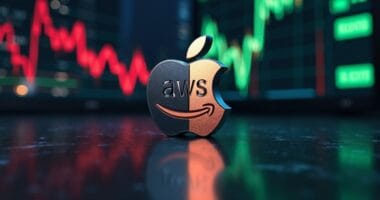JPMorgan Chase is shaking up its climate game by nabbing NOAA’s former chief scientist Dr. Sarah Kapnick. As Global Head of Climate Advisory, she’s transforming how the banking giant tackles climate risks for clients. The stakes are huge – corporations could face $1.2 trillion in annual losses by 2050 without adaptation. JPMorgan’s move signals Wall Street’s growing recognition that climate change isn’t just about polar bears anymore. The real story lies in what comes next.

JPMorgan is shaking up how its clients tackle climate risk, and they’re not messing around. The banking giant just nabbed Dr. Sarah Kapnick, NOAA’s former chief scientist, as their new Global Head of Climate Advisory in October 2024. Yeah, they went straight to the top for this one.
JPMorgan means business on climate risk, recruiting NOAA’s top scientist to lead their advisory strategy into uncharted territory.
This isn’t just another corporate reshuffling. Kapnick’s bringing serious scientific firepower to JPMorgan‘s client strategy, mixing finance with climate science and national security. The bank’s even rolled out a fancy new “Climate Intuition” series, because apparently some folks still need convincing that climate change is, you know, actually relevant to their bottom line. The series directly addresses sustainable investing myths through their April publication. Proactive measures are often delayed due to cognitive biases affecting decision-making.
The numbers are brutal. Without adaptation, large corporations are looking at annual losses of $1.2 trillion by the 2050s. But here’s the kicker – every dollar spent on adaptation could return anywhere from $2 to $43. Talk about return on investment. JPMorgan’s not subtle about it either: adapt or get left behind.
The bank’s going all-in on integration, embedding climate considerations into daily decision-making frameworks. They’re tracking both physical risks (like those pesky extreme weather events) and changeover risks (think policy changes that’ll make your carbon-heavy business model obsolete). And they’re doing it by the book, aligning with TCFD recommendations.
But it’s not all doom and gloom. JPMorgan’s pointing clients toward opportunities in the green economy, renewable energy, and cleantech sectors. Their Green Economy Banking team is keeping tabs on market shifts and innovations, while their advisory services are helping businesses navigate the path to net-zero.
The message is clear: climate change isn’t just an environmental issue anymore – it’s a financial one. And JPMorgan’s betting big that companies who don’t get with the program are going to find themselves in hot water. Literally and figuratively. With Kapnick at the helm, they’re transforming climate risk from a footnote in financial reports to a cornerstone of business strategy.





